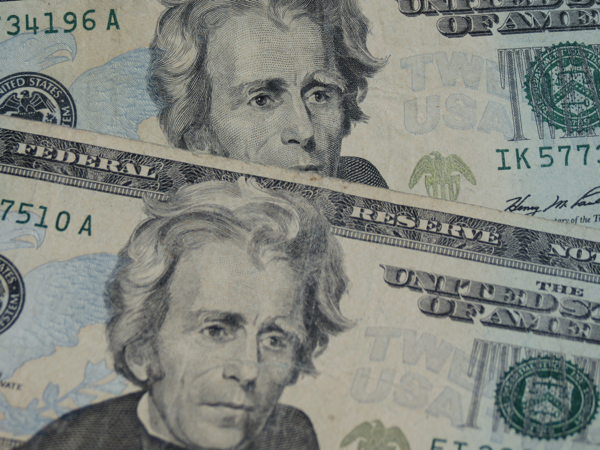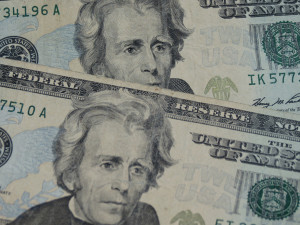
Friday July 27: Five things the markets are talking about
Euro stocks have found some traction after a mixed performance overnight in Asia, as investors remain upbeat over the tentative trade truce between the U.S and the E.U.
President Trump and E.C Commission President Juncker agreed, in principle, not to impose new tariffs while the two economies sorted out their differences. The truce comes as Sino-U.S trade relations remain on edge.
Aside from corporate balance sheets, capital markets remains focused on trade and central bank policy – BoJ (July 30), Fed (Aug. 1) & BoE (Aug. 2).
Today’s advanced U.S GDP will be an important print (08:30 am EDT) – Trump and his economic team are convinced that the GDP numbers will be strong.
Trumps advisers have been privately telling associates that GDP growth should rise to +4.3% or +4.4% for Q2. The President is even more optimistic, telling anyone who will listen he expects a +4.8% headline – anything close and the president will be accused of leaking data. The danger for the U.S dollar is a weaker headline print below +4%.
This morning’s U.S data may provide support for the Fed’s tightening path, while in Japan, reports suggest the BoJ is debating ways to reduce the side effects of their yield-curve control policy.
Note: The ECB indicated yesterday that it will stick to its plan to end bond purchases and pledged to keep interest rates unchanged “at least through the summer of 2019.”
1. Stocks mixed results
In Japan, equities closed higher overnight, taking solace from signs of reconciliation between the U.S and Europe over trade issues. The benchmark Nikkei share average hit a one-week closing high and ended the week +0.56% firmer. The broader Topix ended +0.57% higher.
Down-under, the Aussie’s stock benchmark topped early July’s best in notching another eleven-year closing high – the S&P/ASX 200 rose +0.9% as BHP Billiton rose +2.3%. In S. Korea, the Kospi cooled following Thursday’s outperformance, but still rose further, allowing the index to narrowly avoid a sixth-decline in seven-weeks. It rose +0.3%, both today and on the week.
In Hong Kong, stocks ended flat as expectations of more stimuli from Beijing offset worries over a China economic slowdown. The Hang Seng index rose +0.1%, while the China Enterprises Index gained +0.2%.
In China, bourses ended down overnight, as investors remain cautious amid concerns over the Sino-U.S trade friction. The blue-chip CSI300 index ended -0.4% down, while the Shanghai Composite Index closed -0.3% lower.
In Europe, regional bourses are pushing higher, continuing the positive momentum, with largely positive earnings helping fuel sentiment.
U.S stocks are set to open ‘unchanged’.
Indices: Stoxx600 +0.1% at 391.1, FTSE +0.2% at 7681 DAX +0.3% at 12846, CAC-40 +0.0% at 5480, IBEX-35 +0.9% at 9866, FTSE MIB +0.3% at 21,932, SMI +0.1% at 9153, S&P 500 Futures flat

2. Oil markets ease after three days of gains, gold higher
Oil prices are a tad lower in quiet trading after three-days of gains, but took support from Saudi Arabia halting crude transport through a key shipping lane, falling U.S stock levels and easing global trade tensions.
Brent futures are down -5c at +$74.49 a barrel – it’s heading for a near +2% gain this week, the first weekly increase in four. U.S West Texas Intermediate (WTI) futures are -5c lower at +$69.56, after rising nearly +0.5%on Thursday. The contract is heading for a -1.3% weekly loss, a fourth-week of declines.
On Thursday, Saudi Arabia said that it was “temporarily halting” all oil shipments through the strategic Red Sea shipping lane of Bab al-Mandeb after an attack on two oil tankers by Yemen’s Iran-aligned Houthi movement.
Note: An estimated +4.8M bpd of crude oil and refined petroleum products flow through this waterway towards Europe, the U.S and Asia.
This week’s EIA report showed that crude inventories fell -6.1M barrels in the week to July 20, compared with a market expectation for a decrease of -2.3M barrels.
Ahead of the U.S open, gold prices have edged a tad higher overnight as the dollar slipped against G10 pairs ahead of U.S GDP data that could shed light on the pace of rate hikes stateside. Spot gold is up +0.1% at +$1,223.96 an ounce. U.S gold futures, for August delivery are -0.2% lower at +$1,223.20 an ounce.
Note: The ‘yellow’ metal is on track for its third consecutive weekly decline.

3. Euro yields barely move
Eurozone government bond yields have barely moved in this week’s post-ECB meeting environment, even as the central bank stopped short of providing details on reinvestments. The 10-year Bund yield is trading at +0.40%, unchanged on the day.
Note: Later this morning, both France and Spain are scheduled to announce details of their respective auctions for next week.
Stateside, U.S bond prices are a tad weaker, falling after the ECB said it would hold its benchmark interest rate steady and the U.S. reported progress on a revamped Nafta agreement.
The yield on the benchmark 10-year Treasury note is at +2.975%, up from 2.936% Thursday.
Yesterday, Draghi confirmed the ECB’s plans to gradually phase out easy-money policies, but signalled the central bank would likely hold interest rates steady until the end of next summer. The move continues to highlight a widening policy divergence with the Fed.

4. Dollar firmer on GDP expectations
The USD is firmer on high expectations for this morning’s U.S Q2 GDP with some speculation of a +4.4 to +5% print.
After this morning’s release, the markets focus will quickly shift to next week’s BoJ’s policy meeting (July 30/31), which could prove to be significant for the JPY (¥111.19) as some analysts believe that BoJ could opt to raise the 10-year government bond yield target from +0.0% to +0.1%. Nevertheless, the majority believes that Japanese policy makers will keep its policy steady after authorities again conducted a fixed-rate JGB Bond purchase operation (second operation this week) to keep their yield control target around +0.00%.
EUR/USD (€1.1625) trades sideways in the aftermath of the ECB policy decision with the pair remaining stuck in the tight €1.16-1.17 range it has been for the past month.

5. French consumer spending sluggish in June
Data this morning showed that French consumer spending was lethargic last month, with household expenditure staying ‘virtually flat,’ according to statistics agency Insee.
Digging deeper, consumer spending rose +0.1% on month in June, well below market expectations for a rise of +0.5%.
Spending was up +0.3% on year – the agency also revised May’s figure for household expenditure on goods to +1.0% from +0.9%. Consumption in food and energy was stable in June, with a slight rise in engineered goods and a slowdown in durables.


